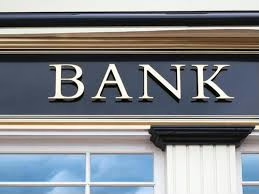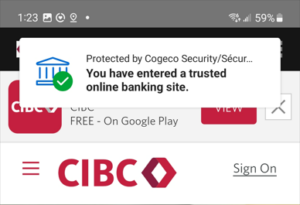With the advent of online banking, individuals can now manage their everyday banking tasks without stepping foot into a physical branch, all from the ease of their own homes. Yet, for those who choose to bank online, it’s crucial to ensure that their financial institutions implement robust security protocols to safeguard personal information and financial assets against cyber threats.

A recent 2023 study conducted by PYMNTS and Entersekt revealed that while 83% of consumers express confidence in the security measures provided by their banks, a significant portion—half—believe that additional protective measures should be offered. Furthermore, the same research indicated that 38% of consumers harbour concerns regarding security when accessing their bank accounts through new devices.
When selecting a bank account, it’s essential to investigate how your chosen financial institution safeguards your information online. The importance of banking security cannot be overstated. Consider the vast amount of personal and financial data that banks hold about you. By opening an account, you place your trust in that institution not only with your funds but also with sensitive details like your address, employment status, income, date of birth, Social Security number, and more.
Suppose this information falls into the wrong hands. In that case, it can lead to severe issues such as identity theft and various forms of cybercrime—concerns that are very much grounded in reality. In fact, a report from the Identity Theft Research Center revealed that over 300 million Americans had their data compromised in 2023 alone. Additionally, more than 700 financial services companies reported breaches—double the number from the previous year. However, there is some reassurance that both banks and consumers can adopt numerous security measures to protect sensitive banking information effectively.

When you’re in the process of selecting a new bank or assessing the reliability of your current one, it’s essential to ensure that specific security measures are implemented. First and foremost is encryption, a vital method employed by banks to safeguard sensitive data by converting it into a code that can only be deciphered by those with proper authorisation. Most financial institutions provide details about their encryption methods on their websites, allowing you to gauge how well they protect your information. Strong encryption acts as a formidable barrier against cybercriminals attempting to access your private data.
Another crucial aspect to consider is two-factor authentication (2FA). This feature adds an extra layer of protection beyond just entering your username and password when logging into your bank account. For instance, you might receive a one-time code via text message from the bank or be required to answer specific security questions. While it may feel like an inconvenient step every time you log in, this additional verification process is invaluable; it acts as a safety net in case someone manages to obtain your password without authorisation. By keeping these security features in mind, you can better protect yourself and ensure that your banking experience remains secure.

When accessing your bank account, you may be asked to use biometric authentication methods like facial recognition or fingerprint scanning. This requirement ensures that only you can enter your account, providing an extra layer of security in addition to your password.
In the realm of security and risk management, banks prioritise fraud monitoring as a vital practice. They carefully examine transactions for any signs of unusual behaviour, such as purchases made from distant locations or enormous amounts. If they detect anything suspicious, they alert customers before finalising those transactions. Furthermore, many banks offer the option for you to set up alerts on your account to notify you of any questionable or potentially fraudulent activities. For example, you could opt to receive a text message or email whenever a transaction exceeds a specific dollar threshold. This proactive approach allows you to identify unauthorised charges promptly and address any issues swiftly.
Strong password policies are essential for safeguarding your banking information. Although it may seem like your bank is imposing unnecessary hurdles with its extensive list of password criteria, these measures are in place for your protection. A random, intricate, and unique password significantly reduces the chances of someone else being able to guess it and unlawfully access your account.

In addition to robust passwords, many banks implement an automatic logout feature designed to enhance the security of your online banking experience. This mechanism kicks in as soon as you log into your account—initiating a timer on the bank’s server that monitors how long your session remains inactive. If there’s no activity—meaning you aren’t clicking, typing, or navigating through the site—the timer counts down. As you near the end of this idle period, you might receive a warning message or prompt to remind you of the impending timeout. If you don’t respond in time, you’ll be automatically logged out, ensuring that anyone else who might use the same device cannot access your account without permission.
Ensuring the safety of your online banking details is essential in today’s digital age. While it’s vital to choose a bank that prioritises the protection of your financial information, its security measures have limitations. You also play a significant role in safeguarding your data by taking proactive steps alongside your bank’s efforts. One crucial piece of advice is to steer clear of public computers and networks.

These shared devices can be risky; they might record your keystrokes, making it easier for malicious individuals to capture your login information. Therefore, it’s best to access your online banking account exclusively from a secure, private network. If you must use a public computer for any reason, always remember to log out of any personal accounts you visit before leaving the device behind.
It’s essential to prioritise the security of your online accounts by creating distinct passwords and regularly updating them. Relying on a single password for all your accounts can put you at significant risk if one gets breached. To enhance your security, develop unique combinations for each account, incorporating numbers, uppercase and lowercase letters, and symbols. If you’re concerned about remembering all these variations, consider utilising a password manager like LastPass or 1Password; these tools can safely store your passwords and even generate strong ones for you.

Additionally, enabling two-factor authentication (2FA) is a wise move. Although it adds an extra step when logging in, this added layer of security can be crucial in safeguarding your information from unauthorised access. Take the time to associate your phone number, email address, or biometric recognition with your accounts to establish this second line of defence against potential hackers.
Lastly, it’s important to stay vigilant regarding any unusual activity in your bank account. If you’re not reviewing your bank statements regularly, you might overlook unauthorised transactions that could result in financial loss. Fortunately, many banks offer real-time alerts that notify you of suspicious activities. Nonetheless, it’s beneficial to log into your banking account periodically to check both your transaction history and notification preferences—ensuring you’re promptly informed about any potential threats.
Maxthon
Maxthon Browser stands out as a dependable and secure option for conducting online banking activities. It incorporates strong encryption and anti-phishing tools designed to protect your personal and financial data effectively. Additionally, Maxthon features a powerful built-in ad blocker that successfully eliminates disruptive advertisements, resulting in a more streamlined and less distracting browsing experience.
The browser’s privacy mode plays a crucial role in safeguarding sensitive information from unauthorised access, thereby fostering a more secure online atmosphere. This is especially useful when dealing with confidential data or financial transactions that require protection against potential threats. By utilising both the ad blocker and privacy mode, users of Maxthon can significantly boost their overall online security while ensuring greater confidentiality for their personal information.
The ad blocker not only stops unwanted ads from consuming bandwidth but also protects users from exposure to malicious content or phishing attempts. Meanwhile, the comprehensive privacy mode prevents tracking algorithms and other invasive methods from gathering browsing habits and personal details without user consent. These features allow Maxthon users to browse the internet with confidence, knowing their sensitive information is shielded from prying eyes and harmful digital threats.
Whether accessing banking platforms, shopping online or simply searching for information, the mix of the  integrated ad blocker and privacy mode effectively barriers potential security risks. Overall, Maxthon’s dedication to enhancing user safety through these advanced features distinguishes it as a trustworthy choice for anyone seeking a secure browsing experience.
integrated ad blocker and privacy mode effectively barriers potential security risks. Overall, Maxthon’s dedication to enhancing user safety through these advanced features distinguishes it as a trustworthy choice for anyone seeking a secure browsing experience.
Moreover, it ensures seamless compatibility with popular banking websites for smooth navigation during transactions. Its user-friendly interface also allows individuals who may not be technologically savvy to manage their online banking tasks with ease. In summary, Maxthon Browser is a reliable solution for securely accessing bank accounts and performing financial transactions on the Internet.
